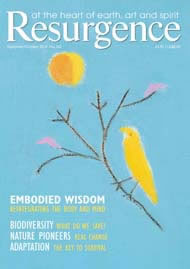Of all the art forms I’ve worked in, produced and taught over three decades, cinema is the one that has inspired, transformed and excited me the most. It’s helped me make sense of my life and the world I live in. Reflections of the trials and triumphs of my life are found time and time again within the celluloid stories flickering in front of my eyes, much like the ancient flames of the fires illuminating the faces of storytellers throughout history.
I’ve been searching long and hard for a way to convey the global significance of film as a platform for emotional, psychological and physical change. Cinema has always felt to me sidelined by the forces of literature and theatre. Like it isn’t a serious artistic contender, particularly when it comes to the epic adventure stories that so inspired me as a kid. I’m often left with the feeling that stories with meaning have to be conveyed to small audiences with big minds.
Only the films with limited reach are the ones to be taken seriously, blockbusters being ‘popcorn for the eyes’, something to be enjoyed on a rainy day or as a means of escape from the demands of daily life. But inside the epic fantasy of films like The Lord of The Rings, Braveheart and The Matrix lies the gift of a reflection of our own individual potential and the ability to be the heroes and heroines of our own life stories, inspiring us to make real changes in our lives. The same is true for biopics and documentaries made from the heart and with an eye on the capacity of film to bring about fundamental change.
With a medium that seems to lean so heavily towards entertainment, escape and making money, where is film’s place in 21st-century Resurgence, and what is its future?
This column will explore contemporary and historical films, directors, writers and actors who offer us messages of hope, reflection and empowerment through their carefully crafted work, and so it feels right that we should start with the most financially successful film in the history of cinema. A movie that has changed the technical landscape of entertainment and the possibilities within cinema, a breathtaking achievement, a narrative as old and familiar as the history of story itself.
I sat in the Manchester IMAX in January this year with my wife, and prepared myself for what I knew was going to be a new cinematic experience. It flashed me back to the first time I saw Star Wars, at The Odeon Leicester Square in London with my brother in 1979. Both events left me wide-eyed, inspired and full of the possibility and adventure in the world beyond the cinema (a feeling that has never left me). The film I had awaited with so much anticipation and sat down to – over-sized 3D glasses perched on the end of my nose – was James Cameron’s epic environmental polemic, Avatar.
This is a production that encompasses the trinity of technology, spirit and tribe with a story focused on the fight against injustice and corporate greed and their inevitable destruction of both the environment and its inhabitants. The buzz and discussion this film has triggered across the planet has been astonishing and appears to have ‘woken’ certain sectors of society that had been conveniently ‘asleep’ to the current environmental crisis we are facing. Cameron really has his money where his storytelling mouth is off screen, and he has now stepped up as a figurehead for the campaign against the Belo Monte hydroelectric dam in the Brazilian rainforest – one of many urgent causes to save the ‘lungs of the Earth’.
He recently told the tribal elders of the Xingu, “We’re here to listen to what you are saying, to hear your concerns and, because I am a film-maker, to share this with the outside world.” And this message is now reaching a massive audience – cross media, cross continent – and shining a powerful light in those dark places corporate industry would much rather remained in shadow.
The global impact of Avatar is clear; the local, more personal effects are harder to define but no less powerful. One good example: my wife and I had entered the IMAX that night locked into a stubborn silence brought about by an earlier argument. We were watching a key scene in the film unfold: the soon-to-be hero Jake Sully (Sam Worthington) is mesmerically covered in floating alien seedlings as a sign of his being ‘chosen’ to lead the Indigenous tribe. We sat, eyes wide, utterly transfixed by the beauty of it and the vision of hope and connection to Nature it conveyed. We got out of the way of ouselves, held hands and let ourselves be drawn into the story, allowing our conflict to dissolve away in the face of the message on the massive screen in front of us.
There is an abundance of independent films, both factual and fictional, from around the world that address politics, war, poverty, injustice and environmental issues. They are for me often powerful essays on their chosen subjects and deserve a much wider audience than they currently enjoy. But the truth is that they tend to communicate their message in ways that only a minority connect with, and more often than not that minority is already converted. For the message to expand its current reach, the language with which it’s being conveyed needs to be simple and clear and above all entertaining. It has to engage, not lecture. Despite its obvious storytelling flaws and the production’s carbon bootprint, Avatar does this in spades.
In this column, I will be searching for the keys that unlock the simple reality that what we see in the films we watch and what inspires us – makes us feel less alone, and more hopeful, connected and alive – is in essence a call to our own individual adventures and to our need for personal and collective change. That the deeper reason we walk time and time again into those darkened theatres or sit down at home to watch a movie is that we are consciously or unconsciously seeking something that will give our lives meaning, something that will help us reconnect to each other and our communities.
When we find this inspiration through the images, sounds and emotions projected back at us from the silver screen, we discover something much more than mere entertainment. We discover the essential, life-giving power of story that transports us not away from ourselves to another land or time but back into ourselves, into our hearts and souls, to a place that has always existed in us and can never be fully crushed by the trials of life. The magic of cinema, of stories told with passion and love, is so much more than a distraction from the everyday. It is part of the fabric of our society and we need its magic now more than ever.








